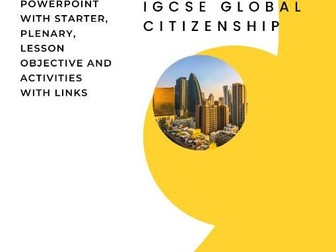Extension activity sheet for any subject
This is an activity ideas sheet I have made to cover ANY subject and can be used for extension, homework, or even plenary ideas. They are automatically differentiated and include English language based questions, to reinforce the language. As I work with mainly EAL students, this works very well.
My plan is to print this as an A3 sheet and have it on the front table or board with 2 dice. Students roll the dice to choose the activity and then complete in their book. Any questions could be written on post its and used as a starter the next lesson, saving you time and giving students more autonomy.
The resource is editable.
